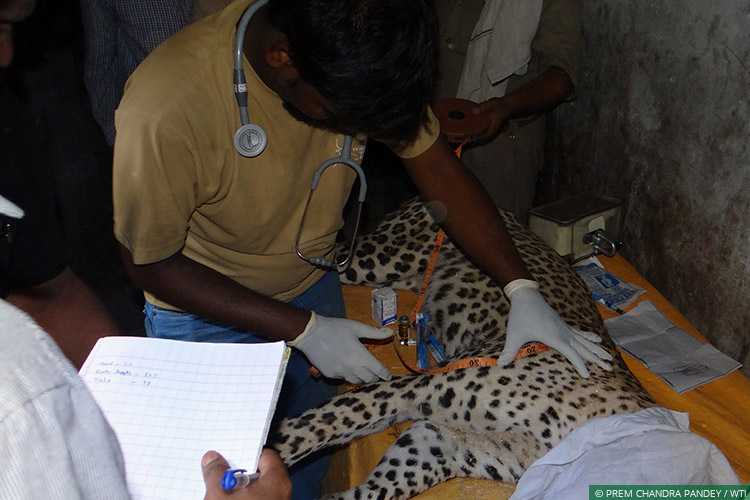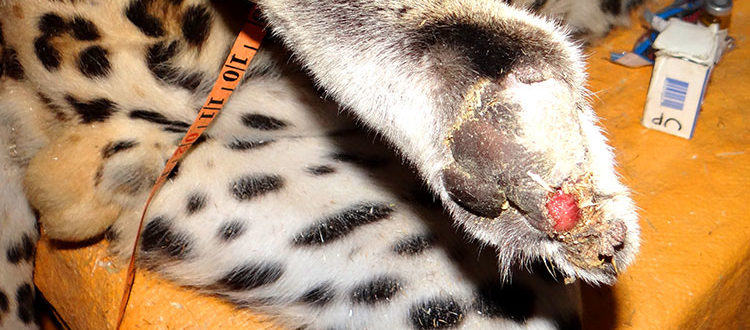WTI Rapid Response Team Rescues Conflict Leopard in Sultanpur, Uttar Pradesh
[acx_slideshow name=”Sultanpur Leopard 30052017″]
Scenes from the conflict leopard rescue operation by WTI’s Rapid Response team and the UP Forest Department at Bhelara village
Sultanpur Forest Division, Uttar Pradesh, May 30, 2017: A Rapid Response Team established under Wildlife Trust of India’s (WTI) Terai Tiger Project yesterday assisted the Uttar Pradesh Forest Department in tranquilising and capturing a male leopard that had strayed into a house in Bhelara village, Kadipur Range, Sultanpur Forest Division.
Having been contacted by the Divisional Forest Officer (DFO), Sultanpur, at around 11.00pm on May 28, WTI sociologist Prem Chandra Pandey and veterinarian Dr Aaron Wesly proceeded to Bhelara from their field station at Dudhwa Tiger Reserve. They reached the village at dawn.
The leopard had by then made its way into the house’s granary, which had a brick wall at the back and a wall with a ventilation opening on the left (contiguous with the house). The other two sides were open; cordoning these off with nets was therefore the first priority.
“Leopards injured or maimed by jaw traps may be forced to venture into human-use areas, increasing the probability of conflict.”
This having been done, the team approached the granary through the house. The leopard could be seen through the ventilation opening, sprawled 12 to 15 feet off the ground on a heap of wheat kernel with only its paws visible. It had inflicted minor injuries to five people and thousands of villagers had gathered, so the focus was on tranquilising it and removing it from the scene at the earliest. A meeting was conducted with senior officials of the forest and police departments to establish the protocols to be followed for tranquilisation.
The operation went smoothly: although a very small part of the leopard was visible, the team was able to tranquilise it on the first attempt, at 8.20am. It was carried into the house where emergency first-aid was provided and a physical examination conducted.
The examination revealed that the leopard, an adult male, had the digits of its right hind limb cut off below the metatarsal – the nature of the injury suggesting that a jaw trap was the culprit. It was consequently deemed unfit for release back into the wild and, following a discussion with the Sultanpur DFO, transported to the Nawab Wajid Ali Shah Prani Udyan (Lucknow Zoo) under Dr Wesly’s supervision. It was handed over to the zoo’s Deputy Director at around 3.00pm.

The leopard being examined by WTI veterinarian Dr Aaron Wesly after it was tranquilised
WTI has rescued at least 18 leopards from the northern and eastern regions of Uttar Pradesh since 2012. More than half were found either caught in jaw traps or having sustained injuries reminiscent of those left by jaw traps.
“The use of jaw traps is quite widespread in UP”, says Dr Mayukh Chatterjee, who heads WTI’s Conflict Mitigation division. “Farmers in the state use them to trap small game or to kill crop raiding species such as wild pigs. But they invariably lead to the death and maiming of several other species, and leopards seem to be topping the list in recent times. Leopards injured or maimed by such traps may be forced to venture into human-use areas to survive, increasing the probability of conflict.”









